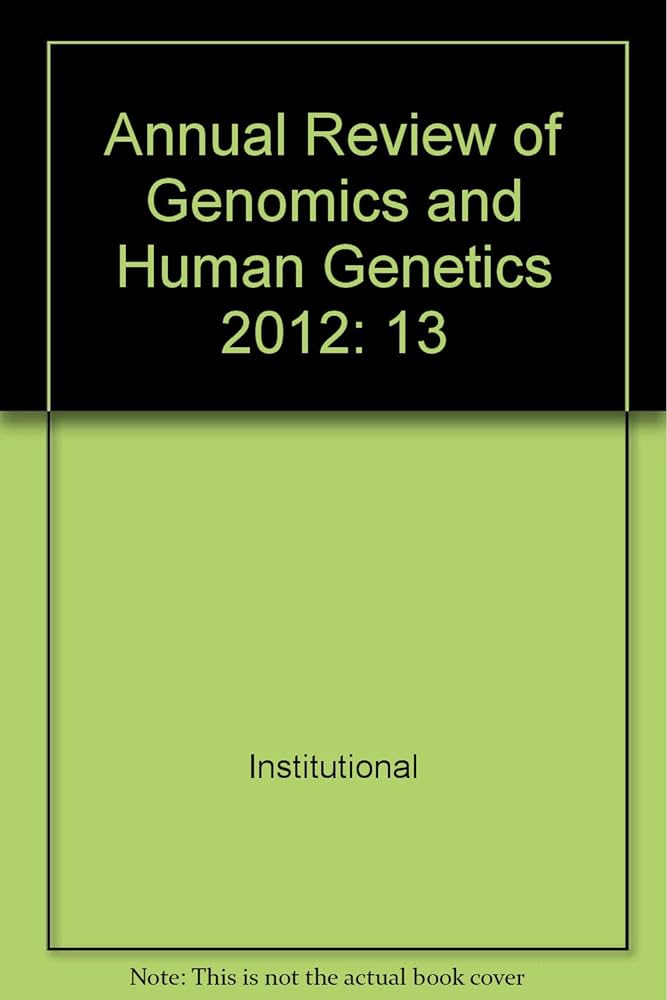Diverse Molecular Mechanisms Underlying Pathogenic Protein Mutations: Beyond the Loss-of-Function Paradigm.
IF 7.9
2区 生物学
Q1 GENETICS & HEREDITY
Annual review of genomics and human genetics
Pub Date : 2022-04-08
DOI:10.1146/annurev-genom-111221-103208
引用次数: 27
Abstract
Most known disease-causing mutations occur in protein-coding regions of DNA. While some of these involve a loss of protein function (e.g., through premature stop codons or missense changes that destabilize protein folding), many act via alternative molecular mechanisms and have dominant-negative or gain-of-function effects. In nearly all cases, these non-loss-of-function mutations can be understood by considering interactions of the wild-type and mutant protein with other molecules, such as proteins, nucleic acids, or small ligands and substrates. Here, we review the diverse molecular mechanisms by which pathogenic mutations can have non-loss-of-function effects, including by disrupting interactions, increasing binding affinity, changing binding specificity, causing assembly-mediated dominant-negative and dominant-positive effects, creating novel interactions, and promoting aggregation and phase separation. We believe that increased awareness of these diverse molecular disease mechanisms will lead to improved diagnosis (and ultimately treatment) of human genetic disorders. Expected final online publication date for the Annual Review of Genomics and Human Genetics, Volume 23 is October 2022. Please see http://www.annualreviews.org/page/journal/pubdates for revised estimates.致病蛋白突变背后的多种分子机制:超越功能丧失范式。
大多数已知的致病突变发生在DNA的蛋白质编码区。虽然其中一些涉及蛋白质功能的丧失(例如,通过过早停止密码子或使蛋白质折叠不稳定的错义改变),但许多通过替代分子机制起作用,并具有显性负性或功能获得效应。在几乎所有情况下,这些非功能丧失突变可以通过考虑野生型和突变蛋白与其他分子(如蛋白质、核酸或小配体和底物)的相互作用来理解。在这里,我们回顾了致病突变可以产生非功能丧失效应的多种分子机制,包括破坏相互作用、增加结合亲和力、改变结合特异性、引起组装介导的显性负作用和显性正作用、产生新的相互作用以及促进聚集和相分离。我们相信,提高对这些不同分子疾病机制的认识,将有助于改善人类遗传疾病的诊断(并最终治疗)。预计《基因组学与人类遗传学年度评论》第23卷的最终在线出版日期为2022年10月。修订后的估计数请参阅http://www.annualreviews.org/page/journal/pubdates。
本文章由计算机程序翻译,如有差异,请以英文原文为准。
求助全文
约1分钟内获得全文
求助全文
来源期刊
CiteScore
14.90
自引率
1.10%
发文量
29
期刊介绍:
Since its inception in 2000, the Annual Review of Genomics and Human Genetics has been dedicated to showcasing significant developments in genomics as they pertain to human genetics and the human genome. The journal emphasizes genomic technology, genome structure and function, genetic modification, human variation and population genetics, human evolution, and various aspects of human genetic diseases, including individualized medicine.

 求助内容:
求助内容: 应助结果提醒方式:
应助结果提醒方式:


